The strategy up until a few years ago was to find a strategic partner for Air Malta. Is it still the airline's main goal?
No. Our main goal has become to put the airline on an even keel and on a sustainable path forward, primarily to serve the Maltese Islands. This is why we have expanded the airline's horizons.
Are we seeking a strategic partner? At the moment, I can tell you, no, we are not seeking a strategic partner. We are concentrating on strengthening and growing the airline, rendering it more efficient and investing in IT while adapting more quickly to change.
In my opinion, the airline suffered many losses when low cost airlines came to Malta for the simple reason that it did not adapt rapidly to change. The aviation industry was changing but Air Malta was not.
Up until a few years ago, everyone was under the impression that without a strategic partner, the airline would face severe financial difficulty. What happened?
There was a change in strategy. The aviation industry continuously changes. We needed to expand and regain our market share in our established routes, such as those to London and Brussels. Our market share was diminishing, as the airline was seeking to reduce its costs rather than changing and adapting itself to the challenges change brings about. It was reducing its fleet and routes. We changed this, and in 12 months we opened 21 new routes.
We also increased the frequency of flights in established routes to better penetrate the existing market while finding new markets. This brought about results, and we saw passenger volumes increase by around 35 per cent this summer.
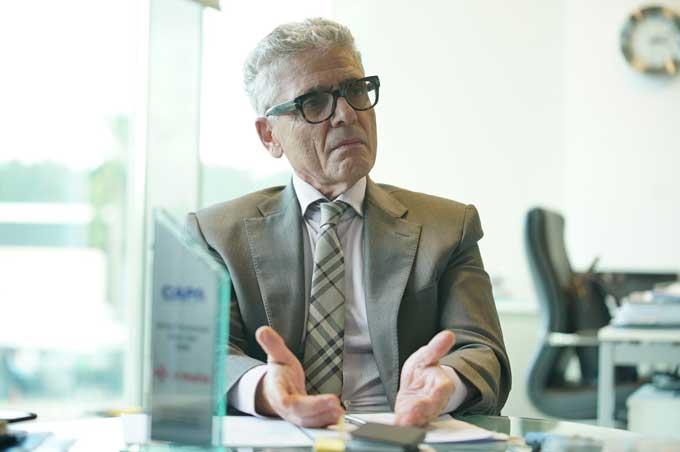
We unbundled the economy class, while leaving the business class on main routes. By unbundled, I mean that we adapted to allow the passengers to make their own experience where they for example, purchase a Go-Light ticket, decide whether they want luggage, and choose their seat and so on.
We also improved the buying on board (on-board shopping) processes and this week we expanded this new product selection by offering over 100 products to the on-board shop and have changed the available fresh food items for purchase in line with the season.
The price reduction on tickets also helped the airline gain visibility. When one books a flight online, the cheapest appear first at the top. So with the introduction of Go-Light we became more visible. Ancillaries revenues are meant to complement the yield on the fare. Our ancillaries' offerings evolve as time goes on.
We also invested, and are continuing to invest in IT. There wasn't any real investment in IT for a number of years, and in order to become more customer friendly we needed to invest. One sees the effect of such investment, minimally, within 12 months. As an example, we just made a €600,000 investment in the Lufthansa LIDO system for our operations, which monitors our whole schedules, plans the load of an aircraft, tells us how much fuel the aircraft requires, and how to change the schedules if a flight is grounded to minimise disruptions. It allows all this to be done very efficiently and we intend to extend it to address rosters. IT development is an integral part of the airline.
I understand that the airline is trying to increase revenue. However, to get to this point how did the airline go from having to reduce the number of flights and financial fears if no strategic partner was found, to increasing the number of routes and frequency? Where did the money come from?
Around a year ago, the government set up a new company called Malta MedAir to acquire the airline's slots in Heathrow and Gatwick airports. These slots are a patrimony for the Maltese people, and are so important that we did not want to run the risk that, if a strategic partner was found at the time, they would take all the benefits from those slots.
The idea was for the airline to sell them to this new company, which would lease them back. In fact, they are leased for 20 years, with everything being above board. Everything was scrutinised and there were no issues.
This generated the necessary cash, and even helped address our collective agreements, as we couldn't receive any direct government funding for what was agreed on, including early retirement schemes.
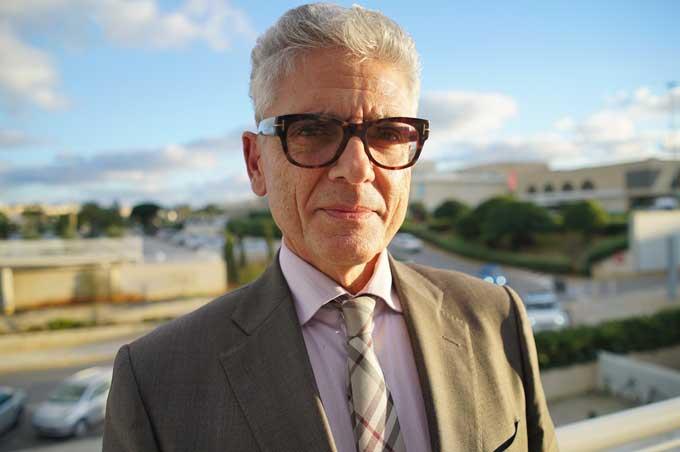
A large part of revenue was also generated by the increase in passenger volume, which enhanced our cash flow.
This year, Air Malta broke even on the operational side, without taking into consideration the revenue generated by the sale of slots to the government company MedAir. This is a considerable achievement, and was part of the reason why Air Malta was considered the turnaround airline of the year at the recent CAPA aviation summit held in Berlin
This does not mean that we do not have challenges ahead. One such challenge is fuel price instability, where we have to keep monitoring the market closely. Another is the potential impact Brexit will have on people's decision to travel.
Cost management is extremely important, and we assess carefully how we can contain and reduce our costs by improving efficiency and re-deploying staff rather than engaging new employees.
We think we can sustain our success, bearing in mind what happens beyond our control, such as fuel prices, the Libya situation, and disruption due to congestion at airports. We also have to admit that our quick growth has brought about certain operational challenges which we are tackling head-on.
Air Malta is trying to become the airline of the Mediterranean, yet the airline has a small fleet of 10 planes. How do you intend to achieve this goal when there are larger airlines offering many routes around the Mediterranean?
Air Malta underwent a restructuring process, following which we began to formulate a road map for the airline for the next decade. In our opinion, the airline has to, in addition to other things, consolidate its position as a point-to-point airline where we connect to all European capitals. We also connect to North Africa. It is our point-to-point aspect which makes Air Malta so vitally and strategically important to the sustainable economic growth on the island.
We must look beyond and find a niche market. We have flights to the North African basin to places like Tunis, Tel Aviv and Casablanca connectivity to Europe in the north. We identified a number of islands around the Mediterranean, such as Sicily, Sardinia, Corsica and Cyprus (the latter lost its national airline) which are under-served and require better connectivity to their mainland and beyond.
While working on this, we will continue to build on the legacy and brand name of Air Malta. The airline is a good brand with a good safety record; it has a very good reputation despite its ups and downs.
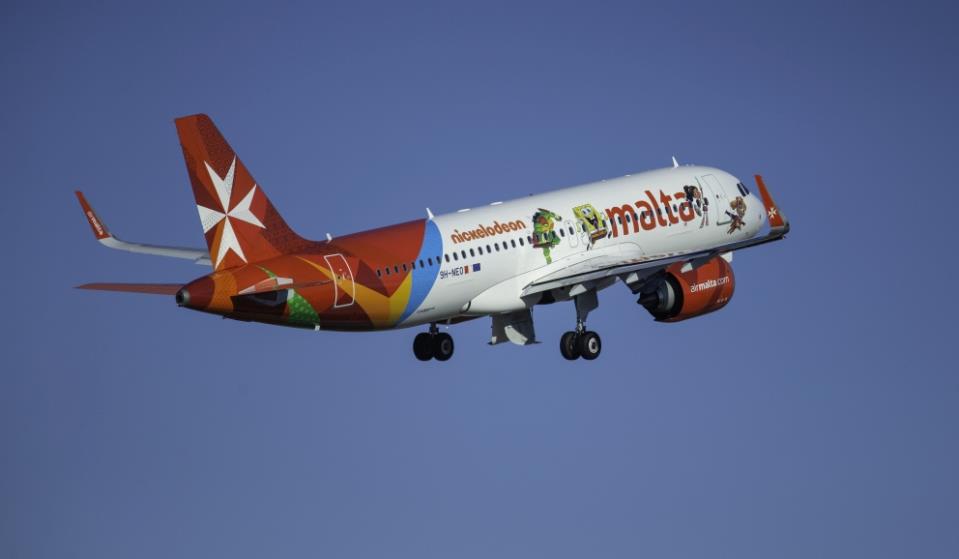
You have already launched a few flights which do not land specifically in Malta. When it comes to these islands, are you considering expanding on that idea?
We already started doing so in Sicily, from Catania and Cagliari to London Southend and Catania to Vienna.
So do you plan on expanding this even further?
One has to look into this. That is why this is a longer-term strategy, and while talking about strategy one would have to consider the type of aircraft one would use, the terms and conditions and the cost. The aviation industry is very price-sensitive, and as it evolves, it becomes more so.
Many airlines close down due to insolvency, while others that have grown, like Iberia airlines and WizzAir, base themselves on lower running costs and IT efficiency. Cost efficiency must always be borne in mind.
With regard to the introduction of Go-Light, the removal of the set food menu, is Air Malta moving towards a low-cost model?
No. We are moving towards a hybrid model. It keeps the comforts we are accustomed to in legacy airlines, like having code-share partners, a business class and keeping strictly to a schedule even if a flight is empty. Of course, we try to never have an empty flight.
At the same time, we need to adapt to the demands of the industry and passenger requirements. A radical change was introduced this summer to give customers quality and choice on board. Other regional airlines adopt this hybrid model. While keeping the business class, they unbundle the economy class, offering different choices, including a low cost fare, additional services which are optional to purchase and more. We still intend to develop this further, as this is the way we see the aviation industry growing, providing more connectivity, facilitating more long-range development through code sharing and other practices.
We are in discussions with Emirates Airlines to enhance our code share agreement and better connect passengers to/from Australia. We are also in discussions with other large network airlines with which we already have code-share agreements to expand these and improve connections to the Maltese Islands. Once here, customers may want to visit other countries and fly on Air Malta.
These are all different streams of revenue which will help the airline and complement the yields.
We will probably have handled around two million passengers by the end of the calendar year. If we manage to increase yield by €1 per passenger, we would increase by €2 million per year.
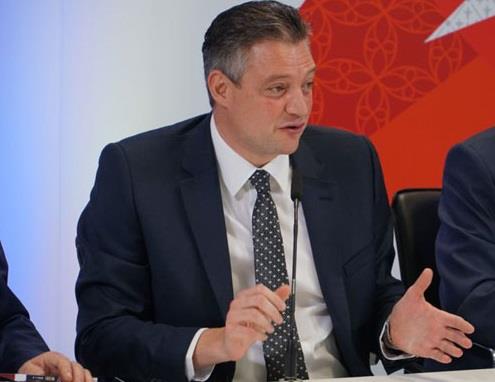
The Tourism Ministry is currently headed by a controversial figure, Konrad Mizzi. Has this affected the airline in any way?
I can honestly tell you that it has not affected us in anyway. In fact, sometimes even the minister is invited to international conferences. We have not encountered in any manner any limitation on our business activity because of these reports. I personally have never been asked about it. I thank the minister for his continuous support.
There have been issues with regard to some cancellations, and mainly delays. What are you doing to ensure fewer delays and reduction of such incidents?
I really regret when passengers are affected by disruptions. Disruptions come from different sources, some within our control, and others which are not. When a plane is grounded due to technical difficulties, we try to address it by possibly shifting aircraft around etc. But whatever one does, there is always a spill over effect in some way or another.
There are also foreign airport congestion issues and air traffic controller issues abroad, and we always try to minimise the discomfort to passengers by offering measures to make the delays less uncomfortable, among other things.
Then there are some issues which emanate from the collective agreement implementation. We are implementing the terms and conditions in those agreements, but there could be cases of misinterpretation in terms of how a particular clause is to be implemented. There is a current case with the pilots and there are ongoing arbitration proceedings. On this sort of issue, which would be linked to the roster, also depends on how many pilots or cabin crew report sick, or pilots reporting fatigue. Obviously, you cannot force a pilot to fly if s/he is feeling fatigued, so one must then find ways and means to replace them.
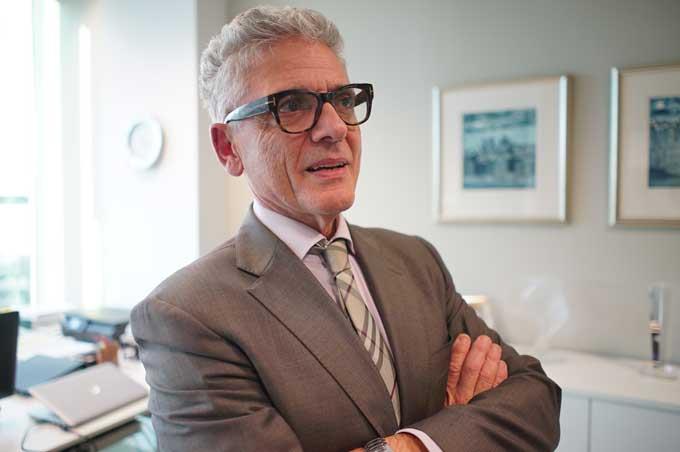
Pilots are very expensive assets, so you cannot have 10-20 pilots standing idle. There is a formula regarding the number of pilots one needs per aircraft; we agreed on the ratio with ALPA and we are working hard to reach that level. The ratio is sensitive information. We have already hired and trained five new pilots, and another 14 are starting training. This takes time. The company took the necessary steps to address this challenge.
There are other aspects of the collective agreement in which there would be disagreement in interpretation. Informally, the pilot's union issued recommendations, as they call them, to their members. Are they legal? This has not been tested and I am not going into that at this stage, but these recommendations restrict the flexibility of the operation and create disruptions. The company is now radically changing its operations structure and developing into an integrated operations centre.
The roster will go through a software to ensure the work carried out by the pilots and cabin crew will not be fatigue indusive. From a technical point of view, the company is investing in a roster to minimise, as much as possible, what could cause fatigue. It must be borne in mind that the block hours (time spent flying) every pilot is allowed to work (900 block hours) according to legal limits, amounts to 75 block hours per month. While the company's task is to ensure maximum utilisation of the aircraft, the situation today is that our pilots do not exceed more than 65-68 hours per month, and our pilots fly less than the legal 900-block hour limit.
We certainly do not expect any pilot to work beyond the legal limit. We are willing to train the number of pilots per aircraft required, and all efforts are being taken by the company to facilitate the operation.
We can disagree on interpretation of collective agreements and so on, but I believe that at the end of the day the majority of employees, from pilots to cabin crew, have the company at heart. I take this opportunity to thank them all for their efforts and commitment.